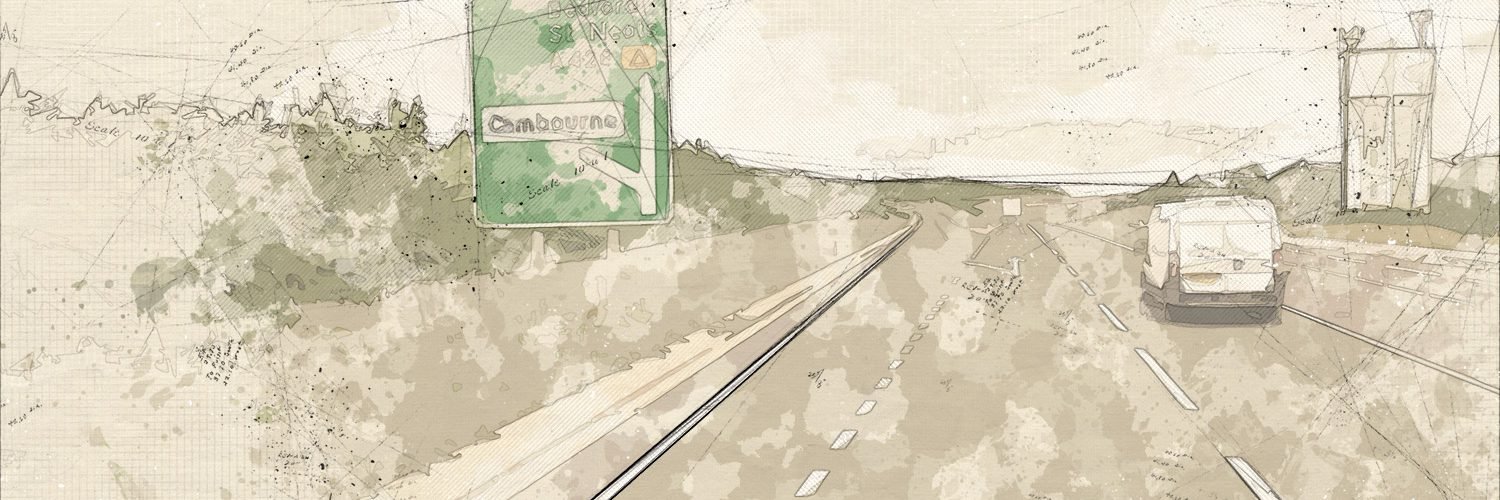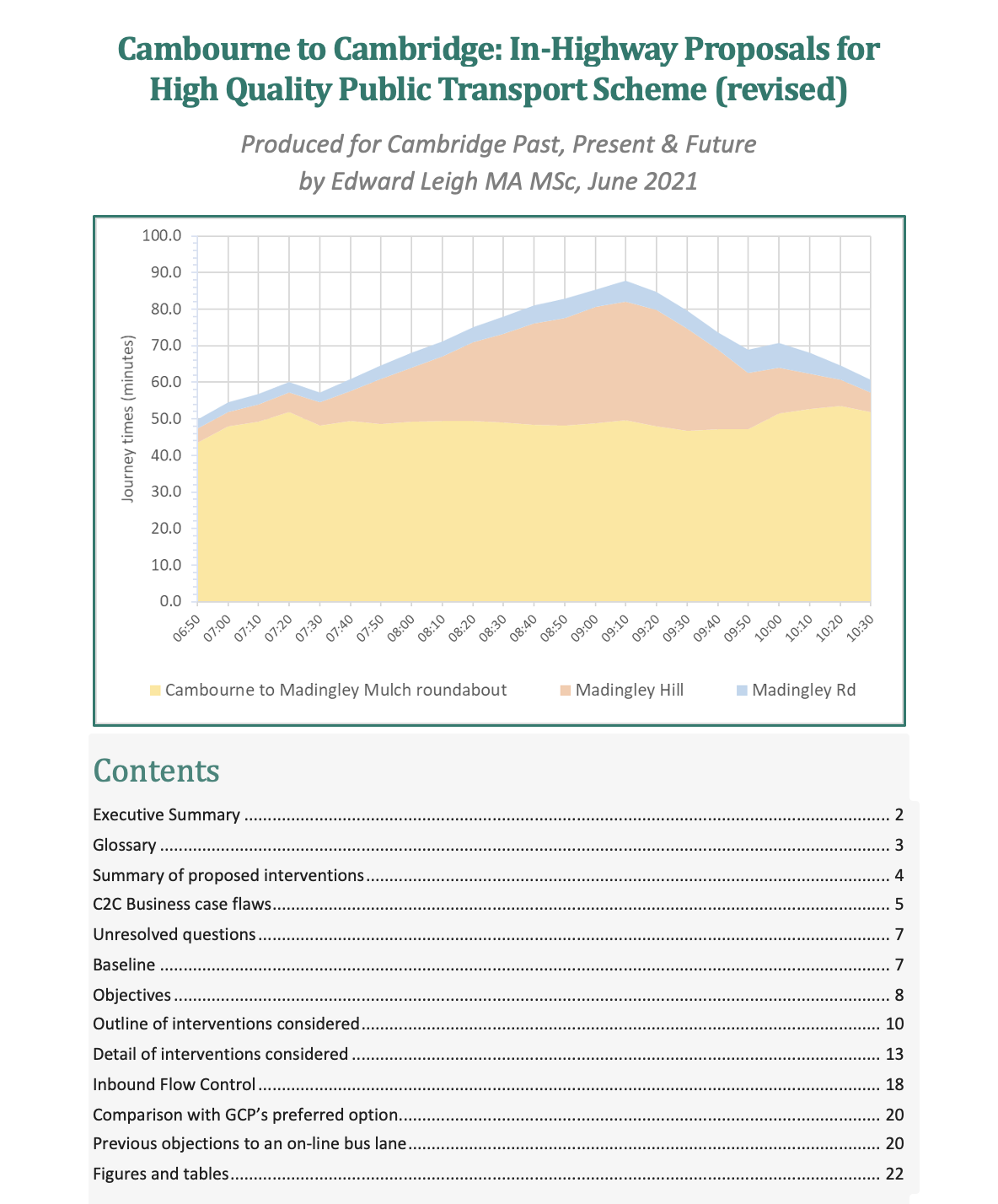The following report was commissioned and paid for by Cambridge Past, Present & Future, and is republished here with permission. The report was submitted to the Greater Cambridge Partnership during the independent audit of the Cambourne–Cambridge scheme in February 2021, and updated in June 2021 after it became apparent that the Cambridgeshire Autonomous Metro scheme was likely to be cancelled.
Executive Summary
There remain serious flaws with the business case for the Greater Cambridge Partnership Cambourne–Cambridge busway, and significant uncertainties with other transport schemes that will affect the area to be served by the busway. Most notably, East West Railway, which is planned to run via a station at Cambourne, will abstract a significant portion of forecast users of the busway; and there is, as yet, no agreed plan for eliminating congestion in the city (east of Grange Rd), which will continue to impede buses.
East West Rail is able to provide a high-quality public transport scheme serving the Cambourne area in the medium and long-term. This creates the opportunity to consider in-highway improvements to bus services and active travel which could meet short-term needs and, in the medium and longer term, also provide access to locations that will not be served by the new railway. This report identifies some of these opportunities and estimates the bus journey time savings they could achieve.
Analysis of bus travel time data from 2019 reveals:
- There is no problem with outbound congestion west of the M11 junction: 99% of bus journeys are delayed by less than 2½ minutes.
- Congestion east of the M11 junction in both directions is typical for an urban road with multiple junctions, and tolerable until city-wide demand-management measures are implemented.
- There is minimal congestion inbound to Madingley Mulch roundabout (delays are mostly related to dwell times at bus stops).
- Congestion is a serious problem only inbound during the morning peak from Madingley Mulch roundabout to the M11 junction. Journey times are wildly erratic. Around 9am on the worst days, 5% (1 in 20) of inbound buses experience delays of 42 minutes or more.
We have therefore focused on measures that may be implemented relatively quickly to reduce delays to inbound buses from the Madingley Mulch roundabout to the Park & Ride junction. The package we recommend, which includes 1,135m of bus lanes and other technical interventions, would reduce a 42-minute delay to under 10 minutes.
We show that large improvements to bus journey times along Madingley Rd can be achieved relatively quickly with in-highway interventions. Buses to west, central and south Cambridge can run via any combination of the A428 and St Neots Rd to the Madingley Mulch roundabout, then take advantage of bus priority measures on Madingley Rd. Buses to north and east Cambridge can run via the A428 and A14, taking advantage of the bus priority measure on the approach to the Girton Interchange.
The interventions we propose would fully satisfy the requirements in the Local Plan to enable and support development of Bourn Airfield and Cambourne West. They therefore achieve most of the benefits of the GCP Busway at a fraction of the cost, and therefore with a significantly higher benefit-to-cost ratio. They would also have much less negative social and environmental impacts.
Our proposal is a subset of Options ‘Low Cost a/b’ in the Options Appraisal Report, with some additions. Option 1 had an estimated cost of £32.6m (in 2016 prices) and a Benefit-Cost Ratio of 1.22, five times higher than GCP’s preferred option at that stage. The package we recommend is expected to cost well under £10m and to provide most of the same social benefits as the GCP option at a benefit–cost ratio in excess of 4.0, compared with 0.43 for GCP’s option.
Therefore, we recommend this package of ‘quick win’ interventions to the Greater Cambridge Partnership and Combined Authority as an effective and low-cost interim solution while the details of longer-term infrastructure schemes, such as East West Rail and the Girton Interchange, are worked out.




Add comment